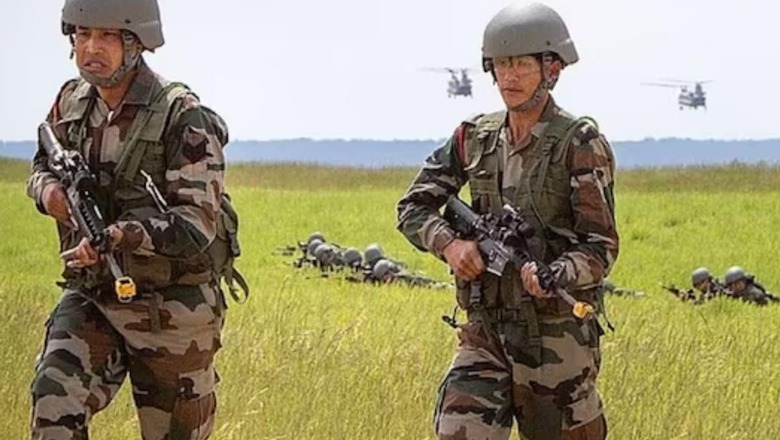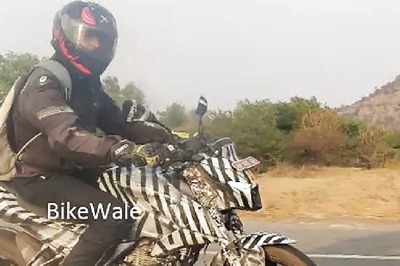
views
In a revolutionary transformation of recruitment last year of PBOR (Personnel Below Officer Rank) — whose long-term ramifications have not been explored — the first batch of Agniveers reported last month to their units except Nepal-Domiciled Gorkhas (NDGs) whose recruitment Kathmandu has kept on hold. Without work to scale the former Gorkha Regimental Training Centres at Sabathu, Lucknow, Varanasi and Shillong have been kind of idle, though training of some surplus of other Infantry Training Centres and Indian Domiciled Gorkhas (IDGs) is being done. IDGs, who make up 40 per cent of the Gorkha Regiment’s quota, are not up to scratch despite some lowering of standards. Due to the absence of recruitment for the last three years, including the Covid period, shortfalls in Gorkha regiments are being masked; in some cases, Garhwalis and Kumaonis are replacing NDGs and there is a lookout for tribals and north-easterners to masquerade as Gorkhas. Other innovative methods are being considered to make up for deficiencies, the most defining being disbanding some of the 39 Gorkha Infantry Battalions, comprising some of the finest fighters in the world.
Late in June, Nepal Prime Minister Pushpa Kamal Dahal Prachanda, who led the 10-year-long insurgency against King Gyanendra and who knows his military beans, informed a former Nepali Gorkha Junior Commissioned Officer that Nepal cannot accept Agniveer and will want reversion to the old recruitment system agreed in the tripartite Treaty of 1947 between Britain, India and Nepal. This appears to be the bottom line on Agniveer on the Nepali side.
This is confirmed by the following:
- Before PM Dahal’s India visit in June this year, Foreign Minister Narayan Saud told BBC (Nepali Service) in Kathmandu that the Agniveer issue would not be raised as there is no consensus on it. On being asked by a Nepali journalist in New Delhi to confirm whether the matter was raised during his talks with PM Modi, Dahal replied vaguely and said he would give a full answer later upon returning to Nepal. He has not so far answered that question even after being asked once more.
- When asked again last month about Agniveer, Saud reiterated that a political consensus was being sought.
- A BBC report of 27 August, ‘Agnipath Scheme: The Pain of Nepali Gorkhas over Indian Army’s New Hiring Policy’, explains that Nepal was neither consulted nor informed about it. Saud said that any change to the Tripartite Treaty should be implemented through consensus. Recruitment is on hold for now. Former Foreign Minister Pradeep Gyawali from opposition CPN UML said: “We are not going to accept a new plan.” Prem Singh Basynet, a retired Nepali Army officer and historian, feared that Agniveers demobilised after four years of service could join an insurgency suggesting a domestic threat potential.
- A whispering campaign has started among Indian ex-servicemen in Nepal claiming that Maoists leading the government in power and Communists in opposition have long held foreign recruitment as inimical to the national interest. India has given them a reason now to implement their agenda.
- However, there are also a few Gorkha ex-servicemen who say something — four years’ recruitment — is better than no recruitment. Four years’ service plus Rs 18 lakh NPR severance pay are fine in times of unemployment. At least 77 ex-servicemen delegations consisting of the minority presented petitions on 30 July to each of the 77 Chief District Officers in the country urging the government to accept Agniveer, to which the government has not responded.
- Another delegation was planning to meet PM Dahal before he left for UNGA on 16 September urging the commencement of a dialogue with India on Agniveer to break the stalemate.
India is being accused of making no effort to start a conversation or consult Nepal on Agniveer. This, many Gorkha ex-servicemen believe, maybe because India wants to gradually terminate the 1947 Tripartite Treaty. Many theories have been propounded on Indian nonchalance on recruitment of NDGs. Rahul Gandhi had attributed the Agniveer scheme to NSA Ajit Doval who in his previous avatar was deeply connected to Nepal and now as NSA is even more involved through various agencies. He has maintained silence on the NDG recruitment. Further, neither the Indian Embassy in Kathmandu nor the Foreign Ministry in Delhi has considered the issue fit for dialogue. The ball seems to be in India’s court as it changed the rules.
Gorkha veterans, which include a former Army Chief and scores of three and two-star Generals, must act on NDGs. These senior officers must reach out and explain to PM Modi, who is the only person who can break the stalemate, that the Gorkha connect is not “hiring of soldiers”, as BBC called it, but a strategic bonding between peoples of two neighbouring countries with whom India has claimed special relations. We, as a nation, should not forget the blood and sacrifice of NDGs in defending Indian sovereignty and territorial integrity.
Ashok K Mehta is a retired Lt General of the Gorkha Regiment, Indian Army & Columnist. He writes and speaks extensively on defence and strategic affairs. Views expressed in the above piece are personal and solely that of the author. They do not necessarily reflect News18’s views.

















Comments
0 comment